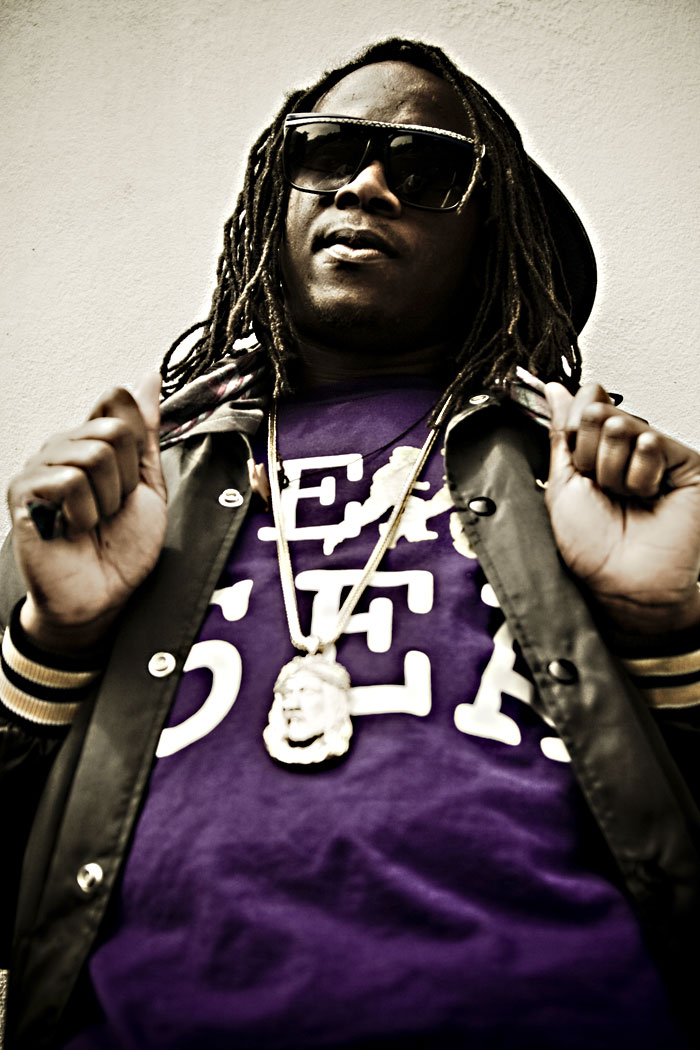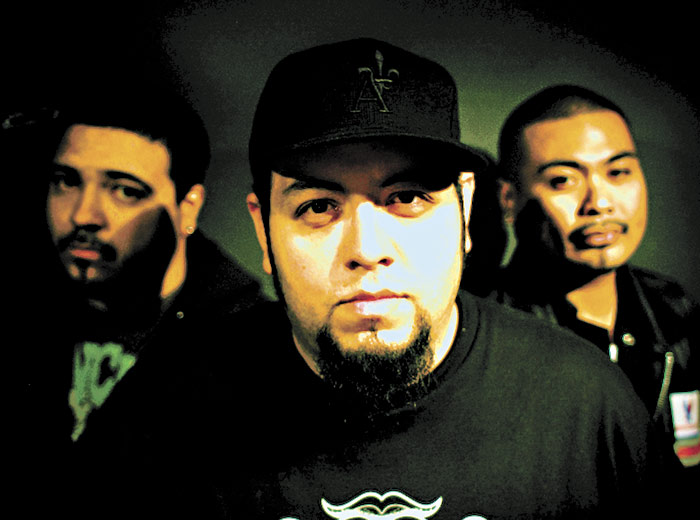Khalil Equiano has been back in Seattle less than 48 hours, and already he’s plotting his escape. The 30-year-old MC, who also goes by the name Khingz, disappeared from Seattle six weeks ago to work at a temporary diversity camp for youth in California. Now that he’s home, you’d think Khingz would be excited to gear up for the release of his new album, From Slaveships to Spaceships, which hit stores this week. The record was a full two years in the making, and according to Khingz, he’s excited that audiences will finally hear it. But he doesn’t see the need to spend a lot of time promoting the album locally, despite how much love he has for this city.
“I feel like we got way too much talent in Seattle for everyone to just be here,” Khingz says during a two-hour drive across the city. “I think [Seattle rappers] could accomplish more by getting out, living elsewhere, and whatever opportunities you get you share it with your people back home. But for everyone to just be living here, and constantly doing shows together, I don’t fully agree with that.”
For years, Khingz made a name for himself as one of Seattle’s wittier wordsmiths, partly because of his swift, didactic rhymes on various projects and at live shows, but also because he fits the role of the post-Rawkus-era backpacker-rapper to a T. With his glasses, long locks, and Burton backpack, you could easily assume he’d spent his early days listening to too much golden-era Souls of Mischief and A Tribe Called Quest.
But despite the conscious MC tag that he rightfully deserves, it wasn’t so long ago that Khingz was ensconced in a world of gangster rap—literally. He spent his formative years as a 47th Ave. Santana Blocc crip, and between the ages of 10 and 20 put in work on the streets gangbanging. At 15 he was shot twice, and he was heavily involved in the city’s storied South End/Central District beef that’s claimed the lives of countless youth over the years. It’s nothing he’s overly proud of, nor is he scared to talk about it. He admits it shaped who he is now, but even though he’s left that life behind, certain tell-all scars from those days linger.
“When you start banging that young, it doesn’t completely go away,” he explains.
Via luck or fate, Khingz’s saving grace came through music. The more he freestyled with friends, the better he dealt with it all. “Back then, I felt like two of the things that all the big homeys used to be impressed by the most was that I could fight and that I could rap,” he says as we wind through Rainier Beach. “So I used to just do both as often as I could whenever they were around. It was all gangster-rap shit, but I eventually got turned on to groups like Boot Camp Click and Nas and De La Soul, and that started to change.”
Listening to Khingz’s songs now, you’d never know banging was such a prevalent part of his past. The calming flow of From Slaveships to Spaceships has a more laid-back, breezy feel that delves into topics as varied as race relations, politics, and the joy of eating at Del Taco with a loved one. Important songs like “Reach In” and “Good Again” reflect on street realities, though there’s nothing gangster about them. “Blaq Han Solo,” possibly the album’s best cut, showcases Khingz’s skill for writing about romance and relationships. Another gem, “Pony Boy,” recounts his upbringing and the stereotypes he dealt with in the multicultural neighborhood of Rainier Beach. In the song’s chorus, he sings, “I’m an outsider/blacks, Latinos, and Asians/and the white girls love me ’cause I’m black and I’m skating.” He throws darts at everyone who picked on him as a kid in that song, especially those who made fun of him for being sort of a “thug nerd.”
“Even though I was banging, I had this secret life all to myself that revolved around comics and science fiction,” he says as our drive shifts yet again, through Skyway. “I just couldn’t really share it with anybody, but I was big into Isaac Asimov and Philip K. Dick, shit like that.”
Although an hour earlier he was enthusiastically talking about his plans to leave Seattle and tour behind the new record, his voice is even more excited as he points out apartment buildings, schools, taco trucks, and tiny places in the South End where most of his memories still reside. He’s lived in various neighborhoods on that side of town, and has a story for each one. We’ve just made a temporary pit stop at the Skyway Park Bowl and Casino when a Somali teenager named Ahmed recognizes Khingz from a recent performance.
“Hey, didn’t you perform at the K’naan show?” he asks. The two get into a 10-minute conversation about K’naan and hip-hop. Khingz did perform alongside Gabriel Teodros at the March 10 K’naan show, and it’s interesting that his raps that night left an imprint on the mind of a teenager from his old neighborhood. “See, it’s shit like that that trips me out,” he says as we pull out of the parking lot. “People remember you for stuff like that and it’s crazy.”
Less than a month from now, unfortunately, Khingz plans to move to Vancouver, B.C., where his girlfriend resides; his upcoming album-release party may be one of his last local performances.
“I like coming back to Seattle,” he says. “I like missing it and coming home. There’s so much love in the city and so many talented artists. I do love it. But I’ve got to get on the road and keep doing music. That’s a part of what will always keep me coming back here.”






